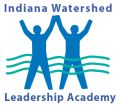Group Projects from the 2020 Academy
Note: These projects were created by the participants, and are not a product of Purdue University. For more information, please contact the authors listed.
|
A: Your Relationship with Water Rhiana Barkie, Christy Krieg, Megan Moss We created a short at home/home school module targeting elementary age children with the goal of creating an emotional connection to water and engendering water stewardship. The module can be completed at home or enriched with a field trip and will require minimal adult supervision for the in-home portion.
Indiana Watershed Education Story Map
B: Chose the Best BMP for You! Derek Carty, Michael Britton, Muka Ngwandwe We developed a brochure outlining 6 agricultural best management practices for use in Jasper County. However, this can be used as a reference tool for most agricultural land across Indiana as well. We hope this will allow individual property owners to view a wide variety of BMPs quickly, while providing direction towards taking the first steps in implementation.
C: What’s in the Watershed? Melissa DeSimone, Samantha Swenson, Paige Hubner We created a directory of resources for use by people living in the St Joseph River Watershed. Additionally, we documented our directory creation steps to allow other watersheds to replicate our efforts.
D: Watershed Toolkit: Education and Outreach Materials Sam Ennett and Amanda Studor Bond We updated the Indiana Department of Environmental Management watershed toolkit web site with new education and outreach materials. Our first update focused on septic systems.
E: Virtual Watershed Cleanup Lindsey Jackson, Heather Parsons and Brooke Fox We created a virtual watershed cleanup activity. The activity includes different pollution types represented by images and walk participants through ways to clean up these different pollution types.
F: Can We Talk? A Case Study on Partnering with our Agricultural Neighbors Pete Kelly and Judy Miller We explored and identified lessons learned from a recent outreach effort conducted by the Greater Olin Lake Conservancy Watershed Protection Project. The project included stakeholder outreach and education in addition to funding the implementation of cover crops adjacent to stream and the three lakes into which they flow. We applied these lessons learned to outline the steps necessary to replicate these efforts within the Five Lakes Watershed. This project serves as the first steps of what we hope will be a long-term relationship and join effort between the Five Lakes Conservation Association and our agricultural neighbors.
Presentation available upon request
G: Reaching Farmers through Print Media: Wabash River Enhancement Corporation’s Cost Share Programs Amy Krzton-Presson, Emily Usher and Chelsea Silva We created a letter-size handout highlight Best Management Practices which can be funded through our local watershed project’s agricultural cost share program. The handouts will be provided online and to the local agricultural partner and governmental agency offices for distribution.
H: Developing Tax Incentives for Farmers to Utilize Watershed Friendly Farm Practices Dan Lash and Nancy Brown We researched agricultural practices which would result in improved water quality and mitigate flooding. Further, we explored how incentives for each practice could result in tax law modifications to promote such practices.
Handout: How taxes are calculated Handout: Current agricultural BMPs
I: Remembering our Identity within the Land Ashley Overton and Andrew Fritz We developed a set of stories, poems, practices, exercises and prompts that are approachable and engaging for the reader. These tools will allow participants to reflect on the deeper parts of our identity within landscape, water and other parts of the natural environment that have influenced and formed who we are as human beings. We’ve developed a booklet designed for use by individuals that engage the reader through art, essay, prompts, and exercises. Special emphasis was placed on the role and importance of indigenous peoples with a small section on considerations for watershed planners.
Guide: Flipable online version
J: Lawrence Lake Case Study: An Example of a Citizen Watershed Management Plan Erica Wyss, Dan Shriver and John Bernero We showcased a Watershed Management Plan that can be developed by any concerned group of people, regardless of government affiliation or financial status. We focused on the Lawrence Lake Study that was completed by our group as a concerned citizen WMP using only data that was available from online resources for free and property owner information and data. We will showcase how a group can create a WMP, key resources used for plan development, and will contrast the Lawrence Lake plan with an IDEM 319 grant funded Watershed Management Plan.
K: Making Your Property Greener and Cleaner Shelby Hauer, Raissa Espejo and Casey Stoffel We created an information brochure for suburban homeowners detailing how they can implement practices on their own property. We focused on conservation and protection of soil and water with a focus on how landscape beautification can promote native wildlife and habitat. Ideas include: rain gardens, pollinator habitat/native plants, rain barrels, fertilizer use and more.
L: Elkhart Waters Clean up Guide and Kit Jenna Wait and Annie Klehfoth We created guide that helps people plan and execute a water clean up. This will include creation of a sample cleanup kit that will be loaned out throughout the county. This will be created in partnership with the Elkhart County Waterways Alliance to create for use and distribution.
Clean up guide – draft – Contact the Elkhart SWCD for most up to date version |
If you have questions or comments, please contact Sara Peel, Purdue University.
